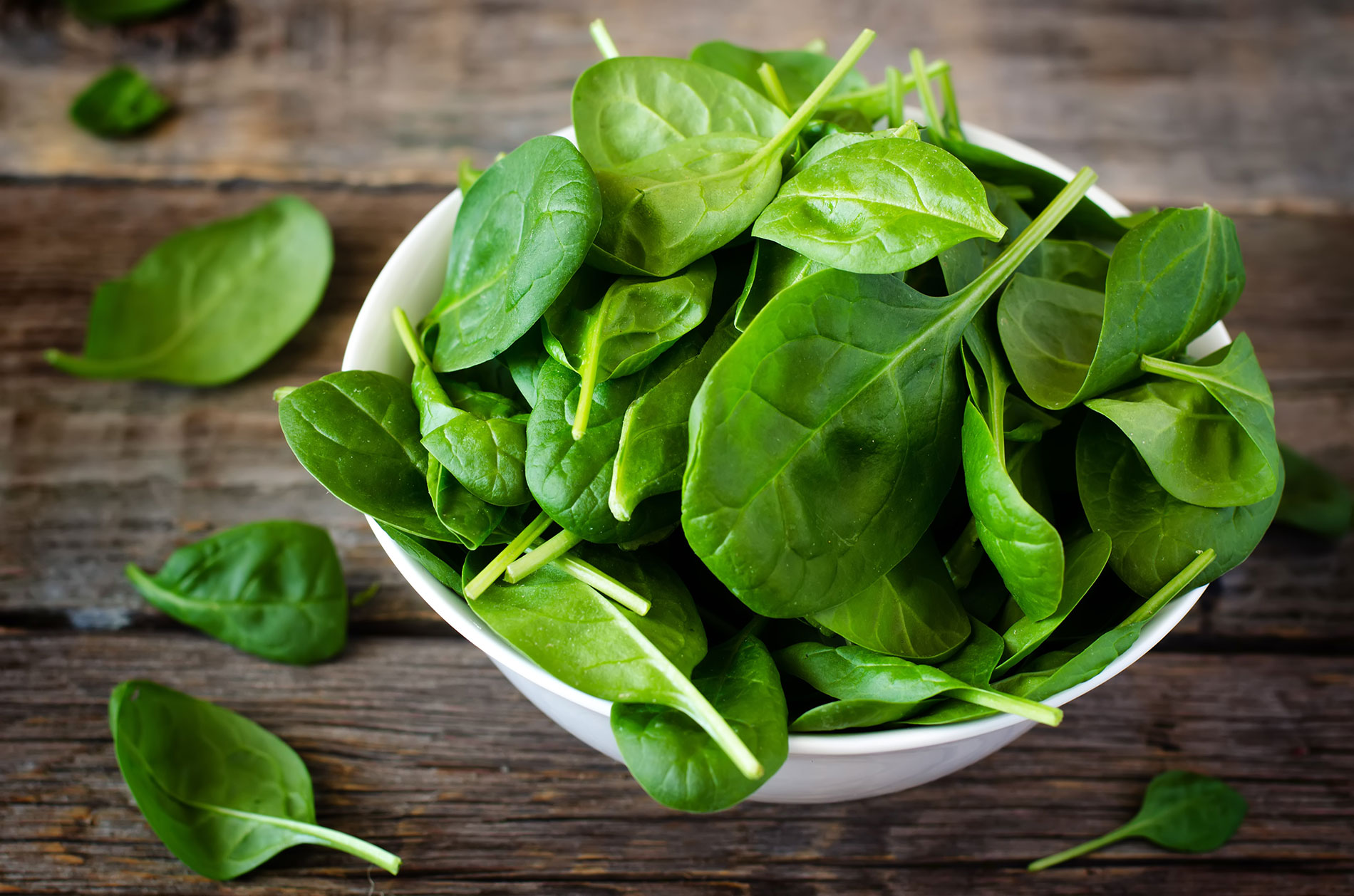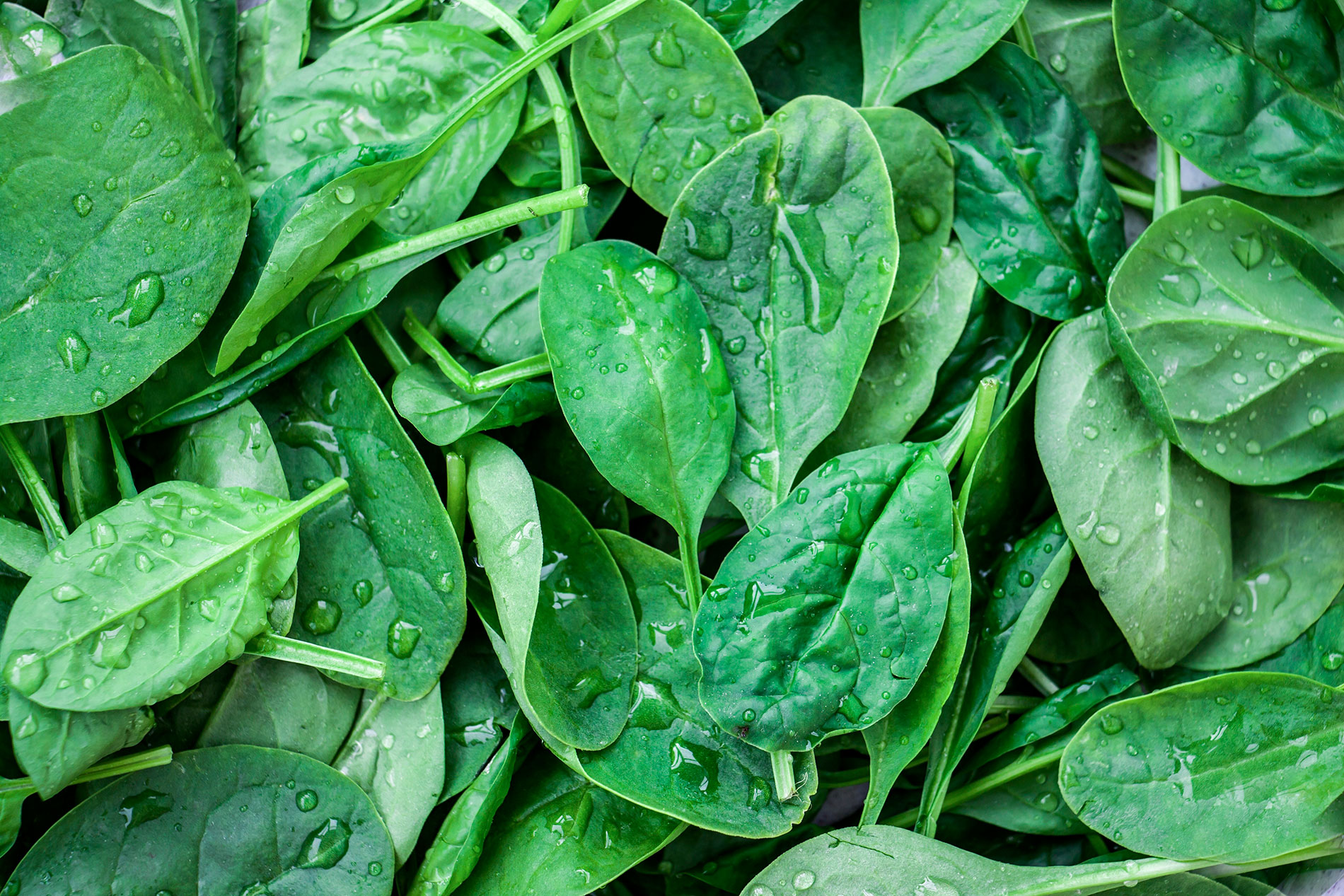Properties of spinach
Rich in vitamin A, C, E and K and in folic acid, a source of magnesium, manganese, potassium, iron and fibre, spinach is recommended for all types of diets. Discover all its properties.
fresh food
Share

Apart from being versatile, spinach is a fantastic vegetable to include in your diet because it can be cooked in all sorts of ways: boiled, steamed, sautéed or raw. It can be included in creamy vegetable soups, in salads, as an accompaniment to stir fries, in sauces or even in your shakes. There is no excuse for not eating it.
This vegetable provides you with many benefits and does not contain any type of fat, therefore it is a diet’s best friend.
¿What vitamins does spinach contain?
Spinach has many benefits for your body. It is rich in both vitamins A, C, E and K, as well as in folic acid (B9).
It has high levels of minerals such as iron, potassium, magnesium and manganese. It is also a food that is rich in fibre, which will promote the correct functioning of your intestinal transit.

Benefits of spinach
It is a great ally in combatting anaemia. Spinach is recommended for those suffering from anaemia due to its high iron content, and because of its vitamin C content, which improves iron absorption.
It is good for your bones. The vitamin K, magnesium and manganese contained in spinach contributes to keeping your bones in normal condition.
With its antioxidant properties, the A, C and E vitamins help to protect your cells from oxidative damage.
It helps to reduce tiredness and fatigue through its content of vitamin C, folates, iron and magnesium.
Recommended during pregnancy. It is rich in folic acid, which contributes to the growth of maternal tissue during pregnancy.






